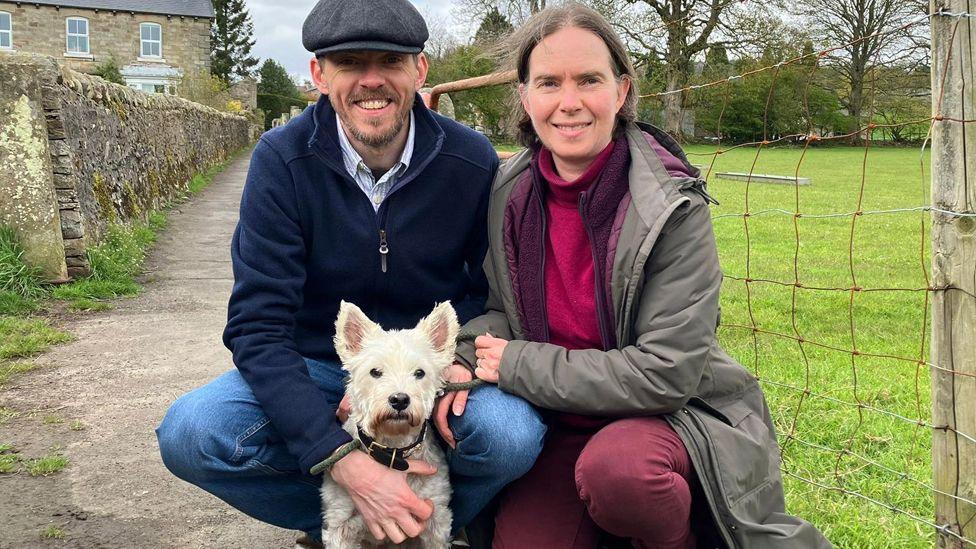Disability benefit process 'emotionally draining'
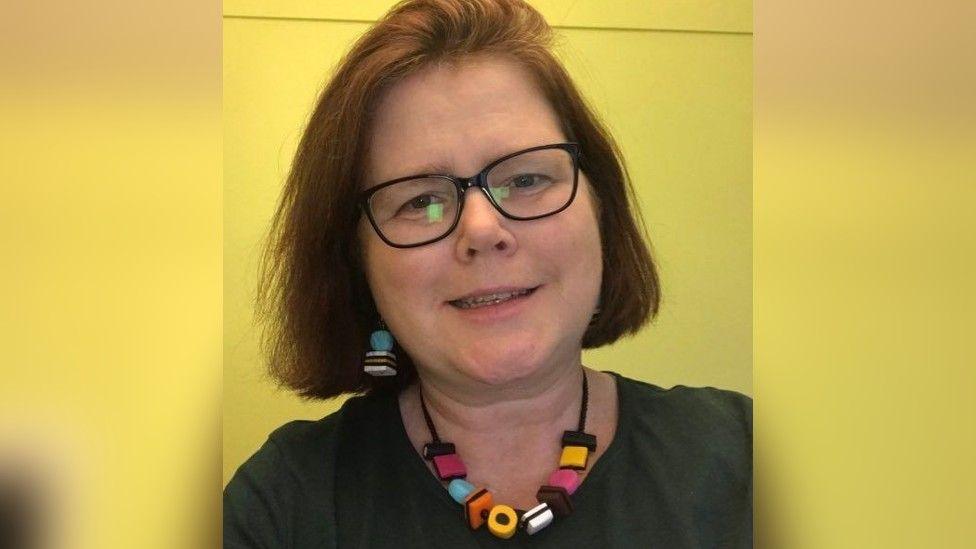
Jo Burridge is passionate about improving the system used to apply for Personal Independence Payment (PIP)
- Published
A woman has described the system for claiming disability benefit payments as “emotionally draining”.
Jo Burridge, 55, from Highbridge, Somerset, said she had found navigating the Personal Independence Payment (PIP) system "really hard" and had now helped design an online tool for others to navigate the process.
"When you’re doing the form you have to focus on all the things you can't do and the pain you’re in - which are all the things you don’t want to think about," she said.
The new Labour government said it was looking at how the disability benefits system worked and would publish proposals in the spring.
Ms Burridge was left with long-term health conditions as a result of a stem cell transplant and ongoing chemotherapy treatment for chronic myeloid leukaemia.
She became passionate about improving the application system after trying to apply in 2016.
"I found it a really hard experience, emotionally draining. It's such a big document when you initially apply," she said.
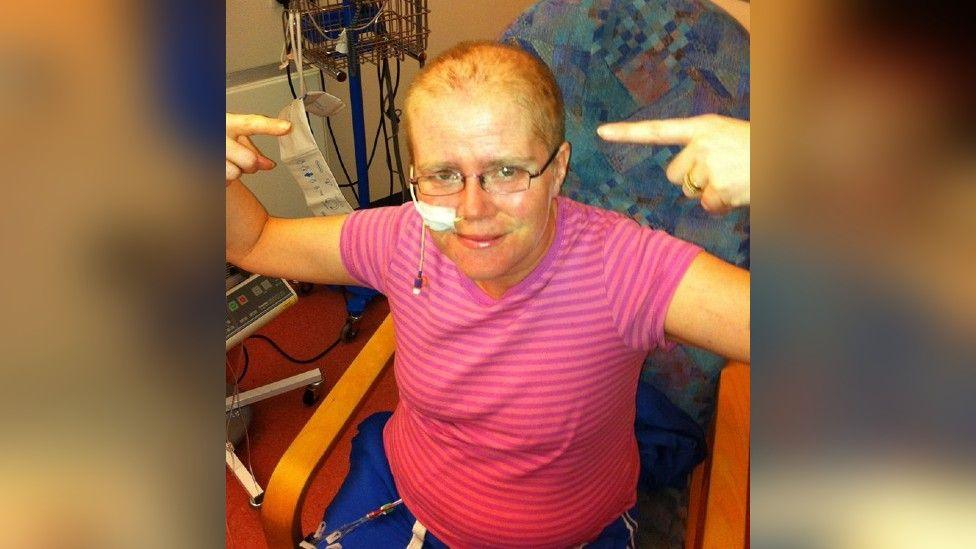
Jo Burridge has long-term health conditions as a result of a stem cell transplant and treatment for chronic myeloid leukaemia
Ms Burridge has temporary cataracts, hearing impairment, cardiac problems and a mild cognitive impairment, which could lead to dementia.
Now, working with the national anti-poverty charity Turn2us, Ms Burridge has co-designed an accessible online guide to PIP, which aims to simplify the process for those who could be entitled to claim the benefit.
The Turn2us PIP Helper, external provides step-by-step instructions to assess eligibility, complete the application, and includes accessibility features such as British Sign Language (BSL) content and audio descriptions.
Ms Burridge has particularly championed the built-in well-being and mental health support, as well as testing the tool and making suggestions for how things could be improved.
"It’s been a great process to be involved in, really interesting, but it's been a long process, as we wanted to get it right," she said.
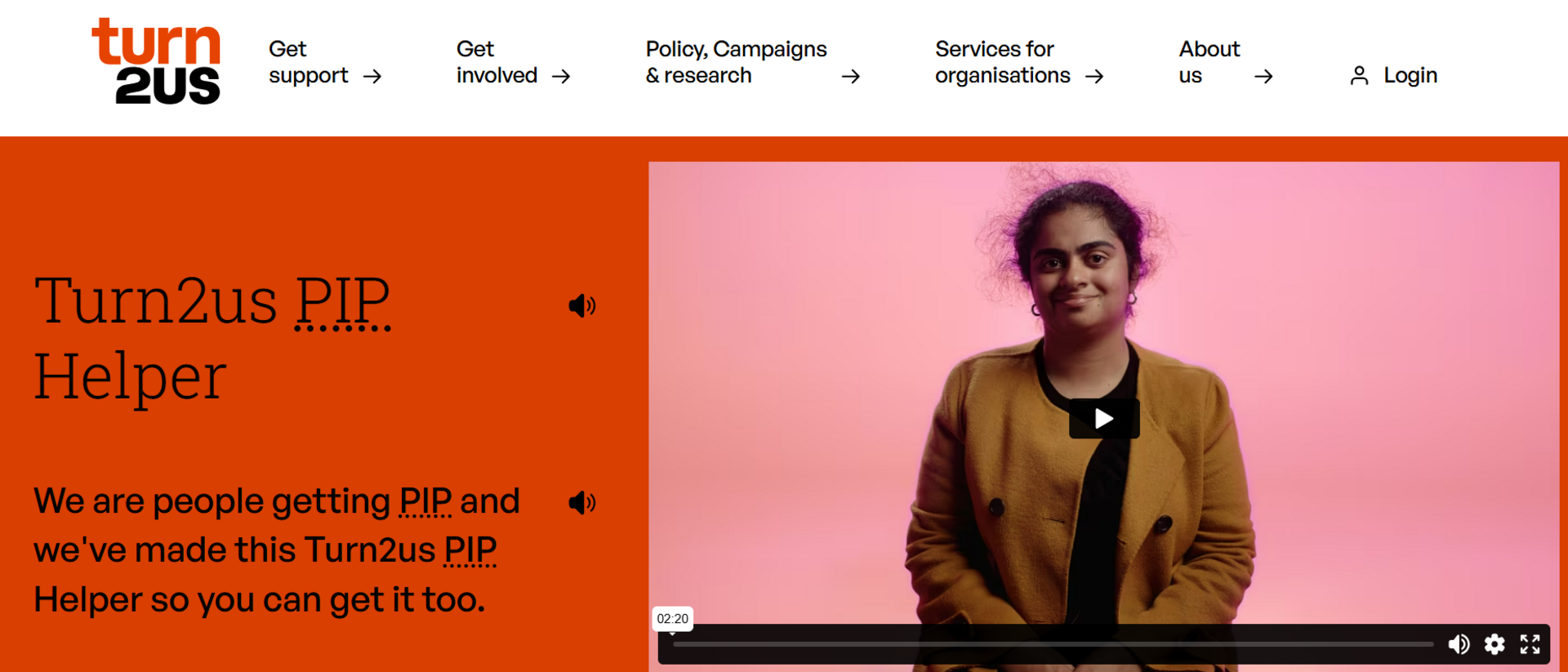
The Turn2us PIP Helper provides step-by-step instructions to assess eligibility and complete the application
PIP is worth between £314 and £798 per month and is aimed at helping with the extra costs associated with having a disability.
The payments are available to people with a long-term physical or mental health condition who have difficulty carrying out everyday tasks, even if they are working.
Turn2us said almost one in three (4.8 million) disabled people are living in poverty.
The charity added that a 14% dropout rate in PIP applications in 2022-23 showed many people struggled to navigate the complex application process.
The National Audit Office has found that £870m in PIP went unclaimed between 2023-24.
'Accessed by all'
The last government launched a consultation on changing the way the disability benefits system works - wanting to save money and encourage more people, particularly those with mental health problems, to work.
The new Labour government has said it will come up with its own plans on how to change things and will publish proposals in the spring.
A spokesperson for the Department for Work and Pensions said: “Millions of people rely on our welfare system every year and it is vital that it can be accessed by all who need it.
"That’s why we will work closely with disabled people to reform the current system so that it provides the support they need.”
Get in touch
Tell us which stories we should cover in Somerset
Follow BBC Somerset on Facebook, external and X, external. Send your story ideas to us on email or via WhatsApp on 0800 313 4630.
Related topics
- Published18 October 2024
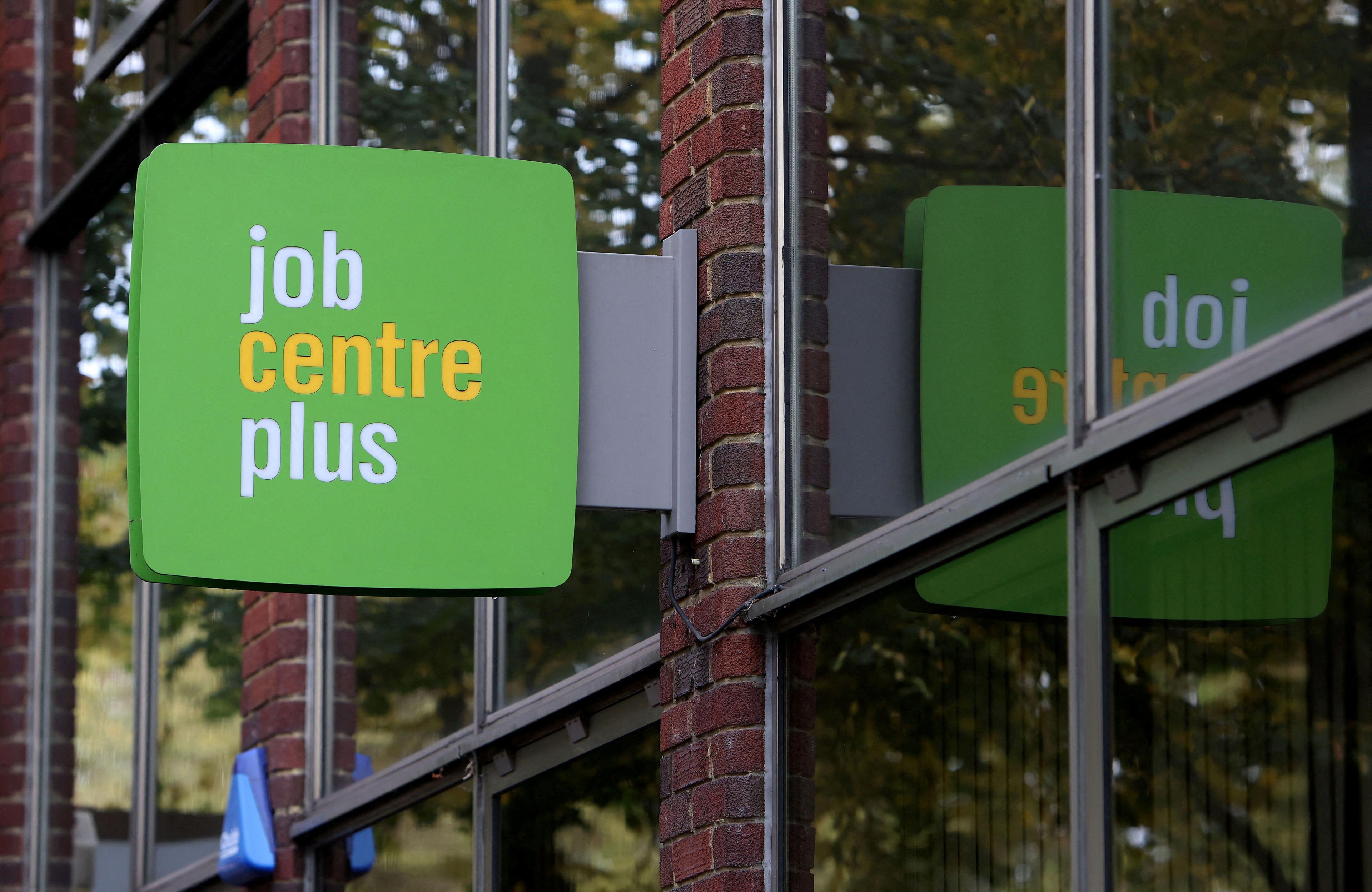
- Published30 April 2024
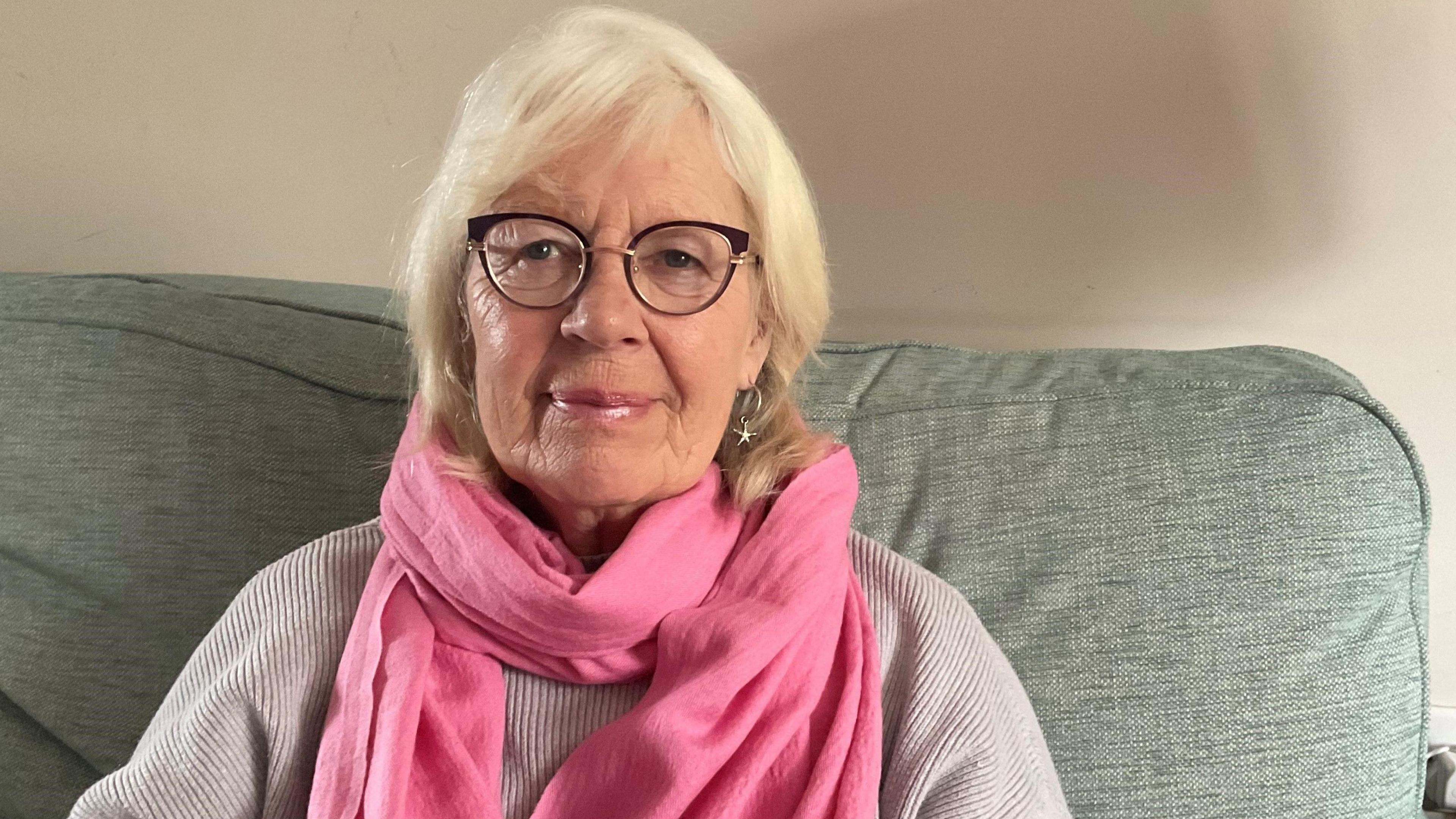
- Published29 April 2024
